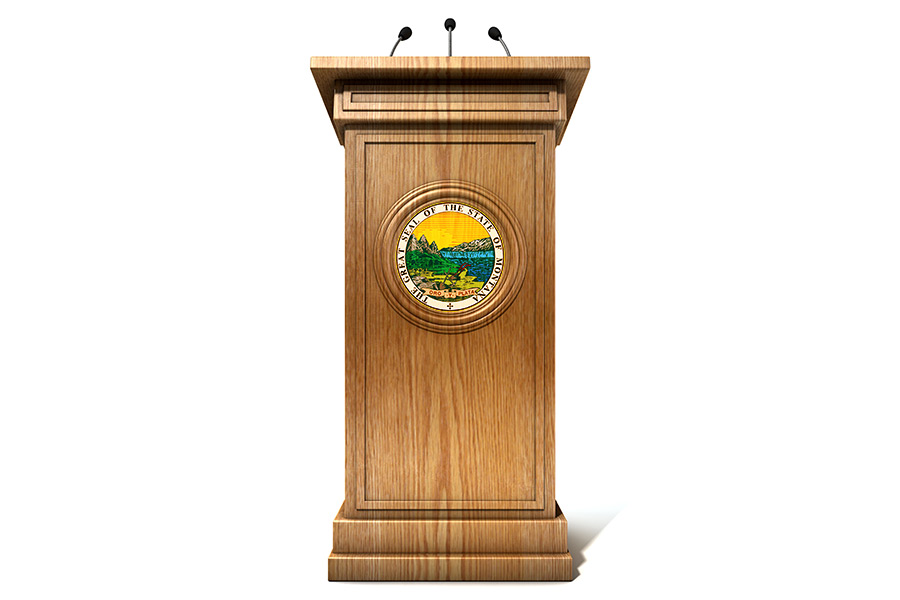On a recent conference call with reporters, Attorney General Tim Fox unveiled his strategy to improve Montana’s failing infrastructure, part of a suite of policy proposals he’s been rolling out as part of his bid for the Republican nomination for governor.
Although it’s a strategy that would impact nearly all Montanans, and one that distinguishes Fox from his opponents who have offered no such proposal, few voters were privy to its finer points.
One reporter couldn’t join the call because of furloughs, which have impacted news organizations statewide as advertising revenue slumps during the coronavirus pandemic. Another reporter’s questions about the plan were muted due to technical audio issues. With no one in the same room, the call ended without ceremony and the plan received scant coverage.
It’s an obstacle that’s become familiar to most candidates as the coronavirus pandemic sucks the oxygen out of campaign season, laying siege to nearly every convention of politicking. Social distancing has obstructed the normal channels candidates deploy to connect with voters, making it increasingly difficult to hew a distinct identity that contrasts with others on the ticket.
Even as some candidates seek out innovative alternatives to resonate with constituents under the constraints of scuttled fundraising events and canceled rallies, campaign politics is hardly a priority for residents struggling to make ends meet in this age of uncertainty.
For Fox, that uncertainty has made campaigning a more begrudging task than it normally would be, despite his conviction that electing the right leaders is more important now than ever.
“In Montana retail politics, voters expect to see you and tell you how they feel, and that has basically become impossible for the most part,” Fox, who is entering the final weeks of a three-way gubernatorial primary race, said. “I’m not complaining because in the big picture people are hurting, businesses are shut down, and in the grand scheme of things campaigning is really not that important. But then you think about our system of government, and you consider the fact that Montana is still going to elect its leaders in the coming months, and you realize that it is actually very important to all the essential services we depend on. So by that same token, campaigns and elections should be at the top of our list of priorities.”
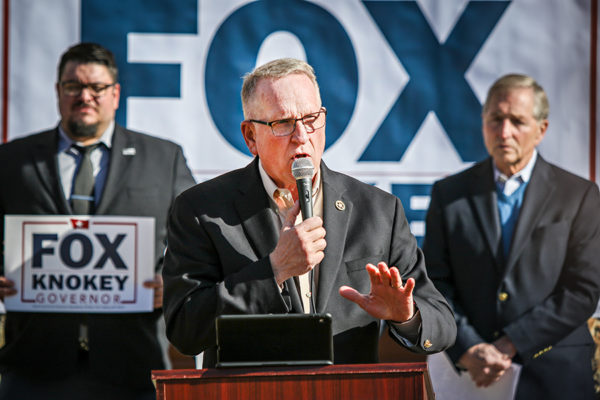
As the June 2 primary election draws closer and voters begin receiving their ballots by mail — yet another shift dictated by the public-health crisis — all five candidates running for governor had the opportunity on May 2 to bask in a virtual spotlight during back-to-back debates that occurred remotely, with each party receiving one hour and each candidate appearing online from their homes, flanked by bookshelves or images of Montana’s crest.
Billed as the only televised debate featuring all five candidates, the forum provided voters an opportunity to view the candidates side by side instead of inside their respective echo chambers.
The three-way race for the Republican nomination is filled with three very different Republican candidates in Fox, U.S. House Rep. Greg Gianforte and state Sen. Al Olszewski, though all three candidates share at least one priority: to reclaim the governor’s seat for the GOP for the first time in 16 years.
With Democratic Gov. Steve Bullock termed out from running again, the governor’s race in Montana — one of 11 playing out across the country — remains one of the most competitive contests in the nation as Democratic candidates Lt. Gov. Mike Cooney and Missoula businesswoman Whitney Williams remain locked in a close race for their own party’s nomination, even if their differences are nowhere near as stark as those contrasting the Republican runners.
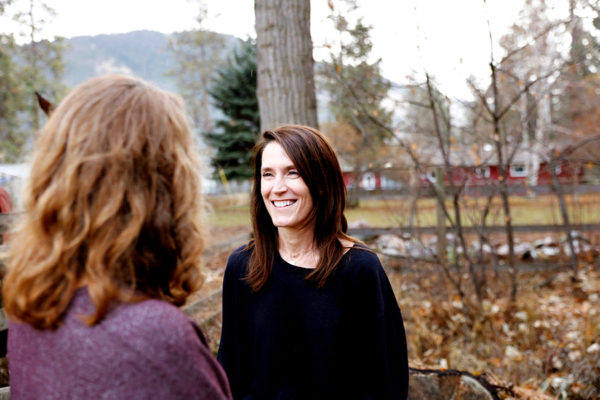
According to some election forecasters, Montana’s gubernatorial race remains a toss-up as prognosticators attribute Democrats’ viability in part to Bullock’s success in 2016, when he won reelection by 4 percentage points despite President Trump winning the state by 20 points. Bullock’s victory was a testament to Montana’s independent streak, to be sure, but the biggest factor giving both Cooney and Williams hope lies in who lost the race.
“I fully expect to be running against a billionaire from New Jersey,” Williams said, referring to Gianforte, the wealthy Montana congressman who made millions as a tech entrepreneur when he launched the software company RightNow Technologies in Bozeman and later sold it to Oracle. “I will not shy away from exposing his terrible track record in Montana. I can take him on and I can beat him.”
Efforts by Democrats to brand Gianforte as an out-of-state carpetbagger (he was born in California, raised in Pennsylvania and attended a private university in New Jersey before moving to Bozeman in 1995) have trailed him since his first unsuccessful run for governor leading up to the 2016 election.
After his loss to Bullock, Gianforte ran the following year in a special at-large congressional election, beating Democrat Rob Quist in a race that was necessitated by Ryan Zinke’s appointment as Interior Secretary and departure from Congress. Gianforte won despite gaining national attention for assaulting a reporter on the eve of the election, for which he later pleaded guilty to a misdemeanor charge.
Despite that textured political track record, Gianforte is currently the leading GOP contender by almost every metric.
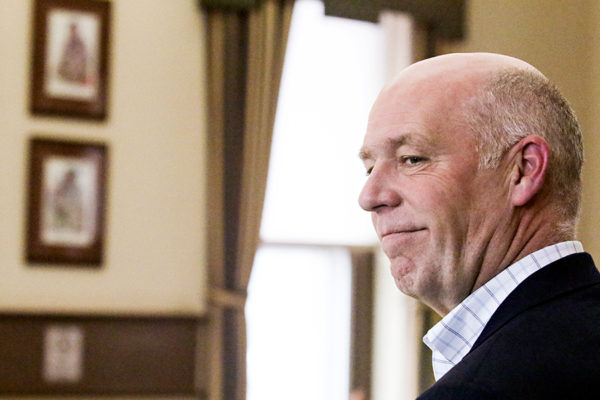
As Fox describes the final pillars of his policy proposals, Gianforte has been broadcasting a message of economic prosperity, saying he’s best equipped to bring high-paying jobs to the state in light of his experience and success in the private sector. Since mid-March, Gianforte has run more than $300,000 worth of television ads to deliver that message, and his $2.5 million in campaign funds dwarfs the war chests of any other candidate.
“This has been a trying time for families in Montana, and our focus now, my focus in Congress, is to build a bridge to get back to a vibrant economy,” Gianforte said, adding that he’s hopeful a COVID-19 vaccine will be developed by the end of the year.
Indeed, the pandemic has elevated health care to the fore of issues that are most critical to voters, many of whom have been the beneficiaries of an expanded Medicaid system that passed the state’s Legislature in 2015 and which was reauthorized last year.
Medicaid expansion has been a topic that has divided Republicans, who broke into factions during the Legislative sessions, with more moderate GOP lawmakers joining Democrats to pass the measures. In the field of GOP gubernatorial candidates, only one opposes expansion outright.
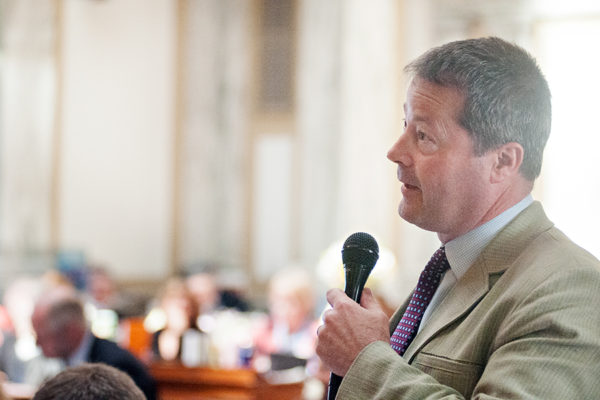
“I am the only candidate that believes we need to replace and repeal,” Olszewski, an Air Force veteran and physician from the Flathead Valley currently serving in the state legislature. “Fifty percent of [Medicaid patients] are ineligible to be in the system, and as a Republican candidate for governor, I am the only one who follows the party’s platform.”
Fox said he bases his own support of Medicaid expansion on having heard from leaders of dozens of critical-access and rural hospitals, all of whom described Medicaid expansion as a lifeline for patients and facilities.
“What we have learned through this pandemic is that our critical-access hospitals in particular, but all health care providers, would have had a more difficult time responding to the pandemic had it not been for this expansion,” Fox said. “I have visited over 25 hospitals and clinics, and every one of them has told us that without Medicaid expansion not only would they have entered into this pandemic unprepared, but they wouldn’t have come out of it.”
Gianforte characterized Medicaid expansion as a “safety net” for those who are most vulnerable, but called for more income or asset verification to ensure the program isn’t exploited.
“My primary concern with the program is that if we allow everyone to climb on the safety net and it collapses under the weight, it won’t be there for the people that really need it,” Gianforte said. “What I would focus on in Medicaid is to make sure that people that are taking advantage of that benefit are qualified.”
Fox has taken aim at Gianforte for making sizable donations to his own campaign but also for his propensity to maintain a low profile, mostly avoiding forums with voters in uncontrolled environments.
“Congressman, it’s clear that you were social distancing long before the pandemic hit,” Fox said in his closing statement during the May 2 debate. “You’ve ducked debates and forums, refused interviews with the press, avoided open public meetings and tough questions and instead used your considerable wealth to buy this election.”
But Gianforte countered with a commitment to running a positive race, saying he subscribes to former President Ronald Reagan’s “11th Commandment.”
“Thou shalt not speak ill of another Republican,” Gianforte said, effectively quashing any back-and-forth exchange.
On the Democratic side, Williams and Cooney were mostly cordial, with the former criticizing Bullock’s administration for its handling of the pandemic, including accusing him of allowing schools to open too early, while the latter applauded the governor for vesting decision-making authority where it should be — at the discretion of individual school boards.
“I do have great respect for how Steve has handled the pandemic,” Williams, who is the daughter of former Montana Congressman Pat Williams and former Montana Senate Majority Leader Carol Williams, said. “The state was right to shut down the schools, but it wasn’t OK to let them reopen again in May.”
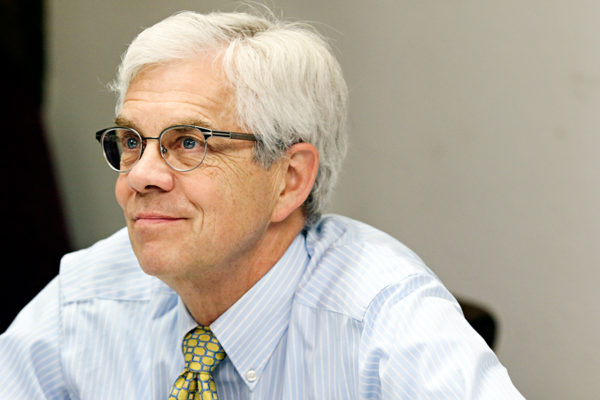
Despite some disagreement over when and how aggressively Montana should begin rebooting its economy as it reels from the coronavirus, Bullock remains popular among voters for his response to the pandemic, and Cooney has shared some of the spotlight.
“I will put my record of fighting and winning for Montana up against any candidate for governor,” Cooney said of his workmanlike career in public service.
Williams, whose family the Washington Post once described as “the first family of Montana politics,” sharpened her own political chops working for Hillary Clinton and stands out as the more progressive of the two candidates, having recently announced her support for legalizing small amounts of recreational marijuana in Montana and using the tax revenue to shore up an anticipated budget shortfall.
Of the two Democrats, Williams’ campaign had more to lose in the unwelcome vacuum of social distancing as she hoped to energize Democrats through campaign events, while Cooney can still gain visibility standing beside Bullock during the governor’s twice-weekly press briefings.
In an interview, Fox said he’s conducted “more Zoom meetings and conference calls in the last month than I have in my entire life,” but he’s tried to make the best of the situation by releasing video vignettes of him at work as attorney general and through digital outreach on social media.
“So I’m not completely shut down, but it has to some extent taken away one of my strengths,” Fox said. “As a lifelong Montanan I know all corners of this state, I enjoy getting out and about and meeting with people.”
For his part, Gianforte said he’s putting together a business plan to promote growth in agriculture, manufacturing, tourism and high-tech sectors.
At the debate, a coin toss determined that Fox would have the last word, which he used to describe himself as “a unifier.”
“That’s what I’ve done as attorney general, and that’s what I will do as governor,” Fox said. “I’m a unifier. I bring people together. And we need that in a post-COVID world.”
